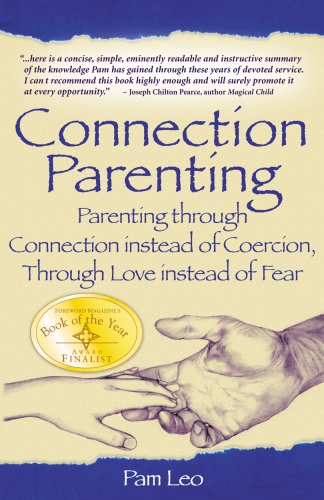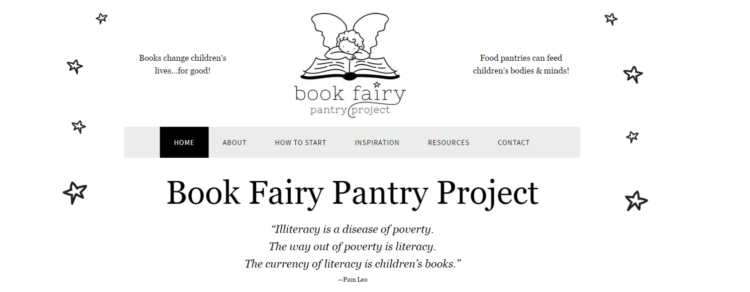Falling In Love With Books
Falling in love with books creates an upward life spiral. Young children who are read to abundantly will naturally fall in love with books. Children who love books usually have an easier time learning to read. Children who learn to read more easily and joyfully usually love reading. Children who love reading usually read a lot. Children who read a lot become better and better at reading. The better children are at reading, the more successful they become in school and in life.
 In contrast, not having the opportunity to fall in love with books creates a downward life spiral. Young children who are not read to don’t naturally fall in love with books. Children who haven’t been read to usually struggle with learning to read. When learning to read is a struggle, children understandably dislike reading. Children who don’t like reading usually don’t read much. The less children read the more they will continue to struggle with reading. Children who don’t “learn” to read can’t “read” to learn. Research shows that students who are not reading proficiently by the end of third grade are 4 times as likely to drop out of school or leave without a diploma.
In contrast, not having the opportunity to fall in love with books creates a downward life spiral. Young children who are not read to don’t naturally fall in love with books. Children who haven’t been read to usually struggle with learning to read. When learning to read is a struggle, children understandably dislike reading. Children who don’t like reading usually don’t read much. The less children read the more they will continue to struggle with reading. Children who don’t “learn” to read can’t “read” to learn. Research shows that students who are not reading proficiently by the end of third grade are 4 times as likely to drop out of school or leave without a diploma.
Every parent I have ever known has wanted life to be better for their children than it was for them. When it comes to how much or how little parents read to their children, I have met three categories of parents. Some parents read to their children abundantly because they fell in love with books and reading and want to share that love with their children. Some parents read to their children dutifully (even if they still struggle with reading as adults) because they want their children to have the educational and life advantages that only learning to read proficiently can give them. There are also many parents who rarely read to their children because they didn’t get to fall in love with books. They also lack the information that reading to young children is vitally important for their brain growth and development and building the foundation necessary for learning to read.
No matter which parent group we identify with, we share a common challenge. We are all competing with screens as we try to raise readers. How can we compete with the ever increasing wonders of technology? Well, fortunately, we have an ace in the hole if we play our cards right. There is one thing I know of that young children want even more than screen time. What young children crave most is one-on-one connection time with their parents. In my 2005 book, Connection Parenting, I share that children’s greatest emotional need is to be securely attached to at least one adult. I teach about maintaining the vital parent-child bond by spending a minimum of 10 minutes a day of special one-on-one connection time, and spending at least one hour a week doing a one-on-one date to strengthen that bond.
I know of no better way to provide that connection time daily than by reading aloud together, and weekly by spending that one hour of bonding time on a reading date. For instance, you could go “out for books” to the library or a book store or go to a cafe for a read-aloud date. When we are reading to them we are strengthening the parent-child bond while building the strong foundation for literacy they will need. For the same amount of parenting time we are giving our children the two things they most need for a good life. It’s the best parenting bargain in town!
The sooner we begin reading to children, the sooner they begin to associate books with feeling loved. Reading from birth brings children into a world where books are part of the furniture in their home. Reading bedtime stories at night gives children a reconnection comfort ritual that they can depend on each night. Reading lift-the-flaps and touch-the-bunny’s-fur interactive books to toddlers delights them. Listening to audiobooks in the car turns even commuting time into connection time because we are listening together. We have the opportunity to make books and reading one of the most exciting parts of childhood before they even learn to read. When we provide children with books about the things they love, the message they hear is, I get you, I support you and I love you.
Giving and reading books to children are wonderful ways for grandparents, aunts, uncles, friends and neighbors to support parents in raising readers. Inspired by the 1000 Books Before Kindergarten Project, I have created a new literacy project called 100 Stories Before First Grade that I hope Maine will embrace. Because it takes a village to raise a reader, Book Fairy Pantry Project will be promoting this by having “Story Drives.” We will be asking libraries, preschools, child care programs and schools to help us distribute our 100 Stories story logs to children who wish to participate. The logs will have spaces to record 100 books or stories so children can go to their parents, siblings, relatives, friends, neighbors, caregivers, librarians and teachers and ask them to help them reach 100 Stories by reading or telling them a story and signing their story log.
In the five little minutes it takes to read one picture book every day we give children the big message that books matter, reading matters and they matter. Being in love with books is the most powerful pre-literacy skill children can acquire. When we give young children the opportunity to fall in love with books by reading to them, we prepare them to achieve their birthright of learning to read and strengthen the parent-child bond all children so desperately need.
This article first appeared in Parent & Family.
Featured photo Shutterstock/Evgeny Atamanenko
https://vifreepress.com/wp-content/languages/new/trazodone.html


